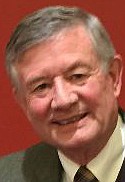FAITHFUL OBSERVATIONS:
It has been nearly two years since we started this column and our very first one was an interview with Pastor Tim Remington, who has seen more than 3,100 people with addictions go through their program over many decades. We thought this might be a good time to check in with Pastor Tim with the drug epidemic in the forefront of the news. This is a ministry that works quietly, without fanfare and yet is so important in the lives they are rescuing and changing.
•••
Tim, we read about the scourge of opiates and other drugs in our country. How has this affected our area?
We still have the problems of addiction to alcohol, pornography and drugs. We mentioned if you went back six or seven years, meth was our biggest problem and more recently opioids and heroin.
Another growing area is the effects of marijuana, which changes the brain chemistry. We now have young people who find they need more than pot but higher doses or going to a counselor and getting diagnosed with bipolar, ADHD, or some other multiple personality disorders and then being prescribed a cocktail of drugs including Adderall, Prozac, Celexa, Kolonopin, Wellbutrin among others and using those to treat the mental health problem. They didn’t have the problems they thought they had. It was drug-induced and now they are clean.
What is your treatment as you take in these who are addicted or dependent on drugs?
First, we go cold turkey — the drugs are gone.
Second, we convince them that they don’t have the problems they think they do and need to start over. Those who are admitted will be in a home environment for two to four months. That includes an introduction to Jesus Christ and counseling.
As we said before, most of these did not come from a home where they had meals together and gathered around a table to talk. We try to replicate that environment with mentors to show them how a loving home will work. We have three residences for men and a ranch environment for women. We have 27 men and 14 women in this first stage of treatment.
We have six intensive outpatient houses where we continue to mentor and monitor their progress in their work and relationships. We have a waiting list of about 40 men and can’t take any more women until April.
It seems like more and more young people are affected by drugs. Are you able to take teenagers into the program?
Because of government oversight and regulations we can’t take anyone under the age of 18 and have the freedom to apply our program. The good news on that front, however, is that Sen. Mary Souza has introduced legislation (Senate Bill 1099) which would allow us to have a waiver to treat individuals from the age of 13 to 17.
This bill passed the Senate overwhelmingly last session but the committee chairman in the House was not able to bring it to a vote. We would encourage readers to let their legislators know we need this passed! We appreciate the work Sen. Souza has done.
What financial support do you receive from the government?
We take no tax dollars from anyone. We are dependent upon fees from those in the program if they can afford it and the rest from donations and our thrift store. We have nine counselors that are full-time and a total of 32 full-time employees and more than 70 volunteers who give of their time.
What is your success rate for those in the program?
Our success rate is about 78% of those who are free from trouble over the next two years and when you compare what we do to a person in prison, it is a dramatic difference. Idaho spends nearly $30,000 to house every prisoner. We estimate we have saved the state well over $60 million in incarceration costs and have people contributing taxes instead of taking.
I know you had mentioned the changes in our society. What is next on your plate?
We certainly don’t want to see Idaho legalize marijuana in any form. It is bad enough having it available so close. Another big issue we can’t ignore is suicide. Idaho and Kootenai County rank high in the nation for suicide. We are putting together a task force to train counselors to be a resource for those contemplating suicide. We believe this is a spiritual issue that needs answers that we can provide.
Pastor Tim, we appreciate your time today but I want to close by asking you two questions. First, how are you doing? After you were shot nearly four years ago by a mentally ill man in your parking lot, you have had a miraculous recovery. Second, if people want to give to your program or volunteer, how do they do that?
Thanks for asking. I believe over the last two years I am about the same, maybe a little bit better. We led a tour to Israel and I am able to work and praise the Lord for that.
Second, we can use any support we can get. We would love to have another house to take care of more people and always have a need for funding. More mentors and volunteers are welcome. People can go to our website for more information. https://goodsamaritanrehab.com
•••
Bob Shillingstad’s columns appear Saturdays in The Press. Email Bob: bjshill@mac.com





